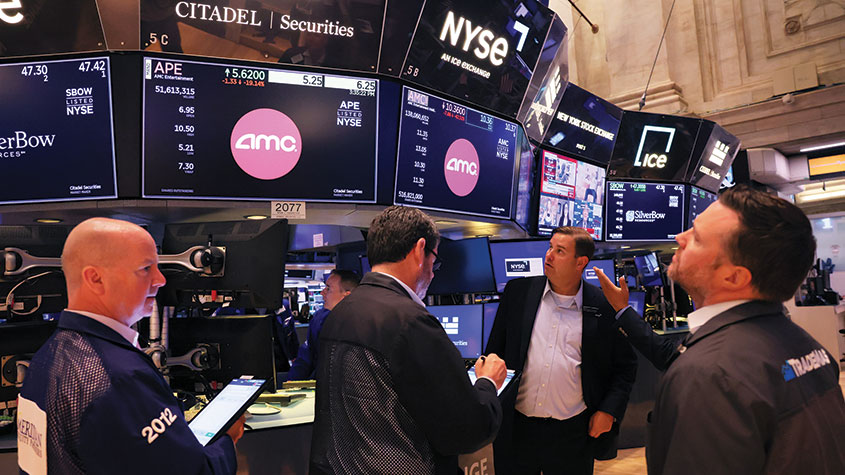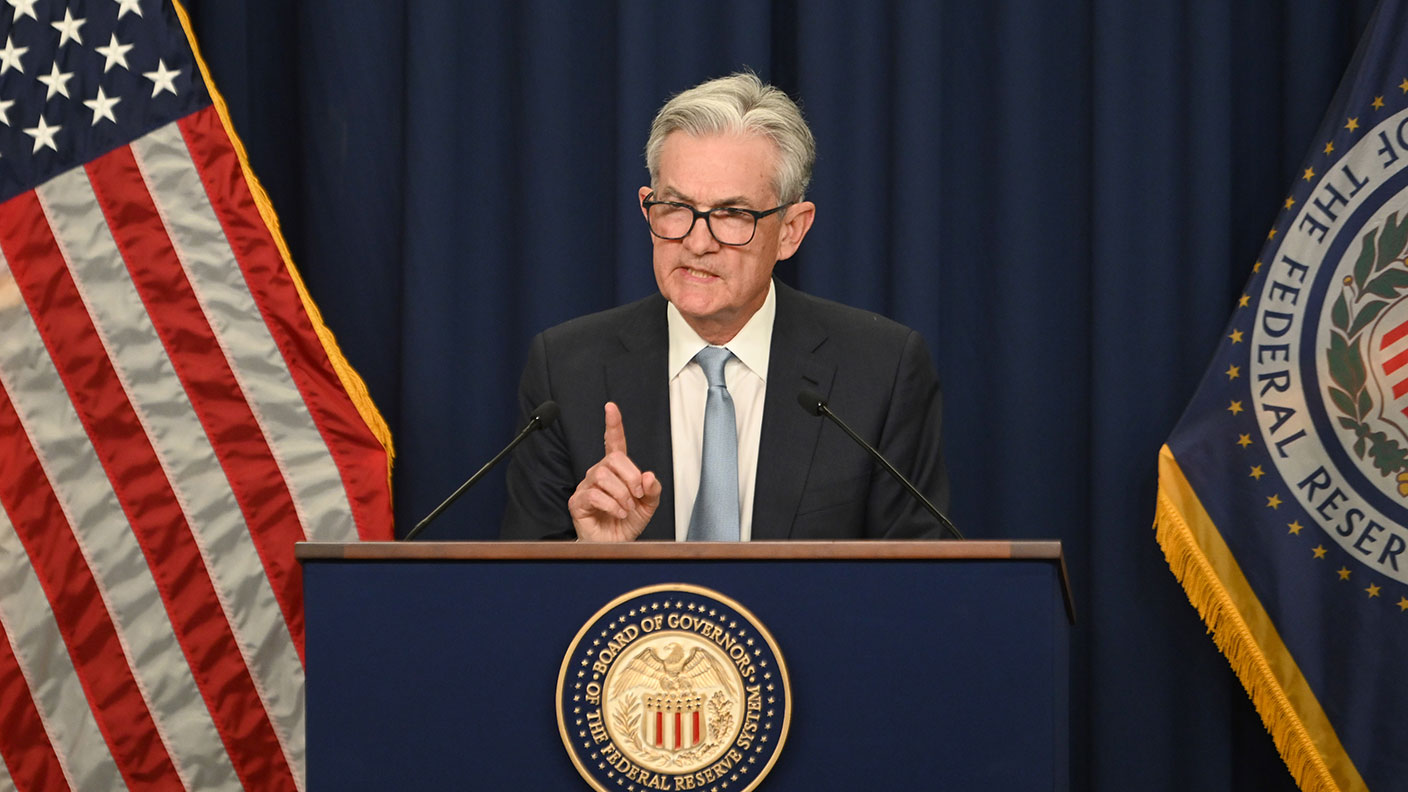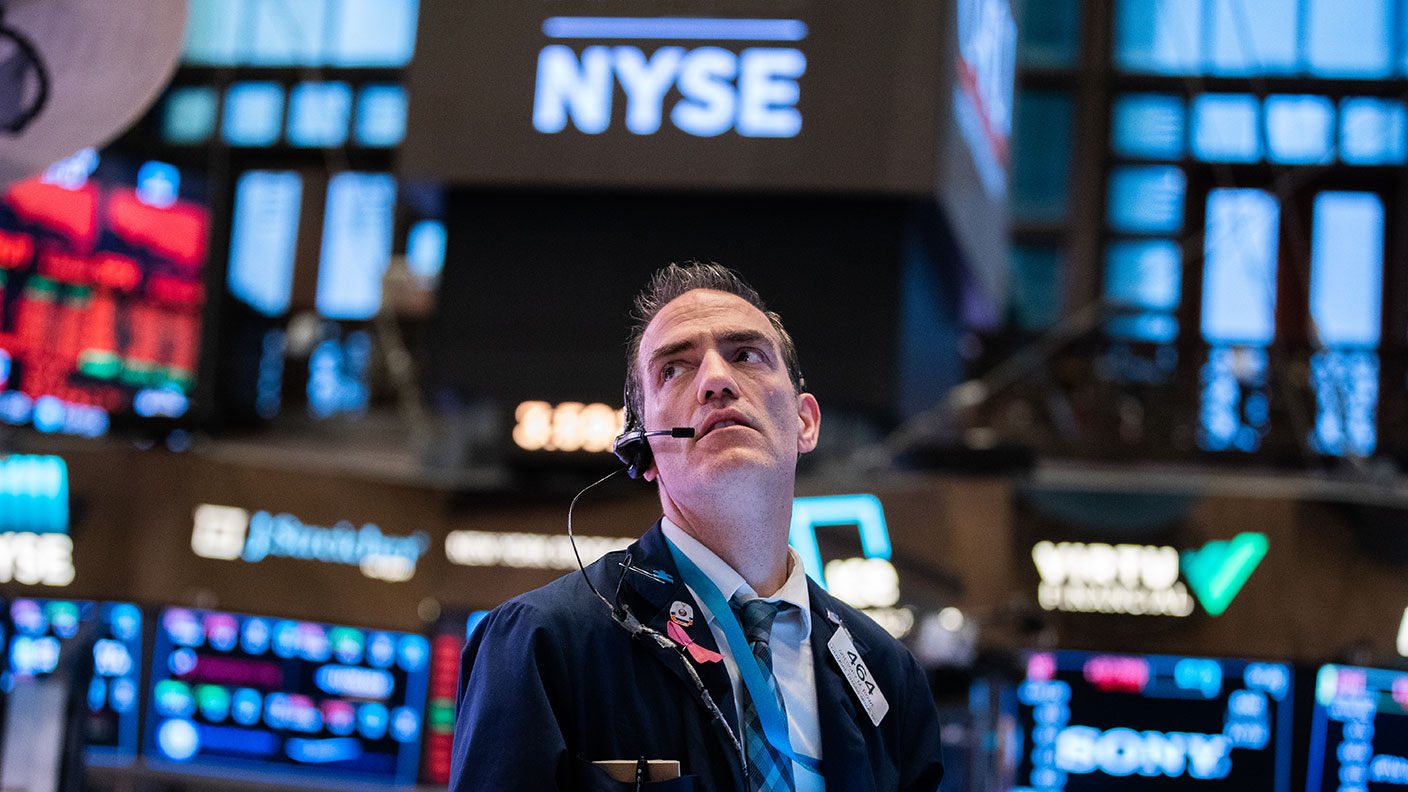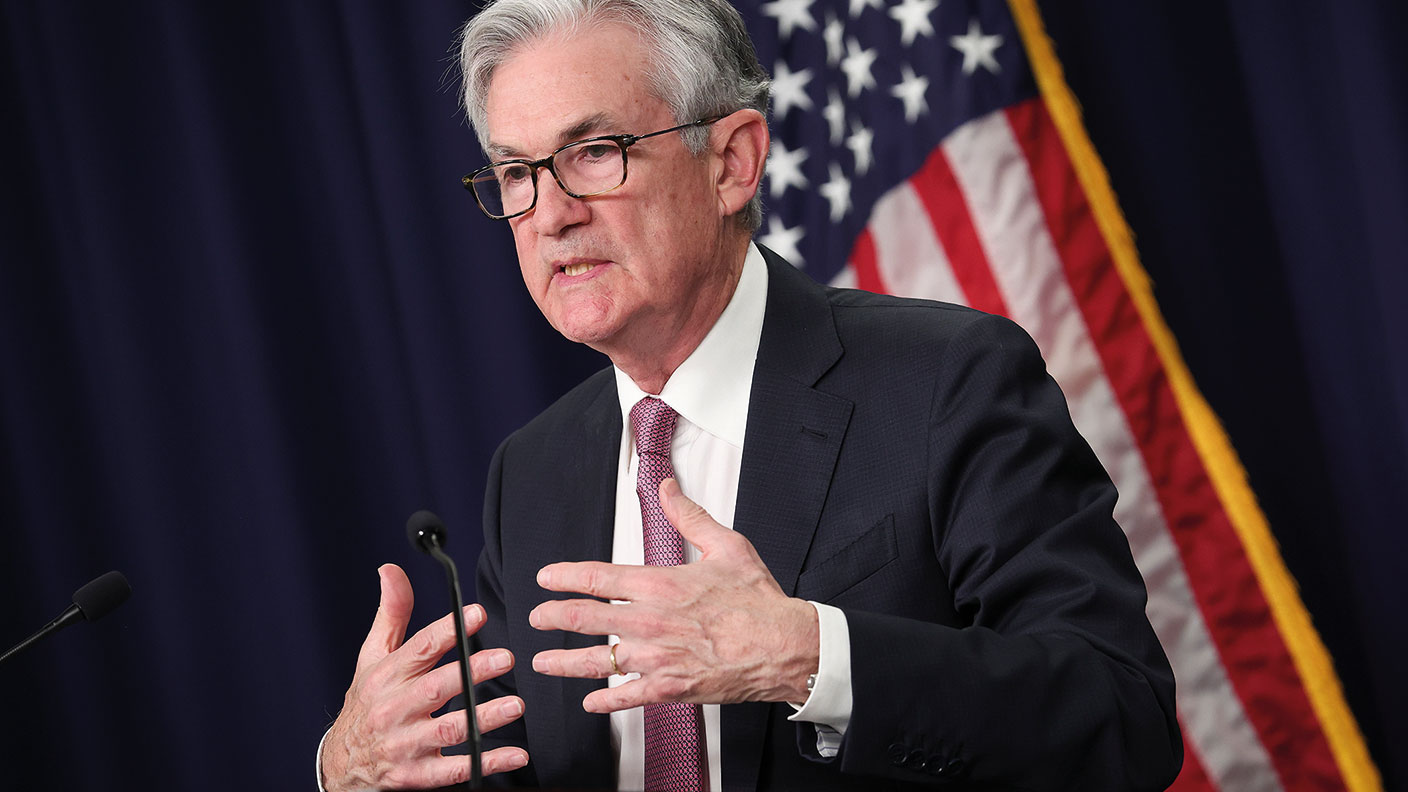Why did the market fall yesterday? Take your pick
Markets around the world have taken a hammering in recent days. John Stepek looks at what’s spooked them, and how you can protect your wealth.

Get the latest financial news, insights and expert analysis from our award-winning MoneyWeek team, to help you understand what really matters when it comes to your finances.
You are now subscribed
Your newsletter sign-up was successful
Want to add more newsletters?

Twice daily
MoneyWeek
Get the latest financial news, insights and expert analysis from our award-winning MoneyWeek team, to help you understand what really matters when it comes to your finances.

Four times a week
Look After My Bills
Sign up to our free money-saving newsletter, filled with the latest news and expert advice to help you find the best tips and deals for managing your bills. Start saving today!

Markets had a nasty day yesterday.
In the US, the S&P 500 wiped out its gains for 2014 so far, falling by 1.2%. Over in Asia, Japan took a hammering, as is its wont, falling about 3% overnight.
Why did the market fall so hard?
MoneyWeek
Subscribe to MoneyWeek today and get your first six magazine issues absolutely FREE

Sign up to Money Morning
Don't miss the latest investment and personal finances news, market analysis, plus money-saving tips with our free twice-daily newsletter
Don't miss the latest investment and personal finances news, market analysis, plus money-saving tips with our free twice-daily newsletter
Well, take your pick
Ukraine, China, the Fed they're all possibly to blame
Clearly there's the worry of what this could escalate into. But another interesting point relates to how hard Russia's markets have been hit by threats of sanctions. Financing deals in Russia are being delayed and, according to the FT, some over-leveraged oligarchs are already facing margin calls.
That's what happens when you've used borrowed money to invest, and the underlying investment goes against you. It usually means that to maintain the position, you have to sell a more liquid asset elsewhere to raise money. So maybe part of the panic is driven by a need to raise cash on the part of various wealthy individuals.
So that's one theory. Then there's China. The big fear here not to pull punches is of a 2008-style credit crunch. China saw its first corporate default last week. Yesterday came news of another. Haixin Steel, a privately-owned but massive steel mill, has failed to repay its loans. That's partly what drove the big drop in iron ore prices this week.
You can certainly see why this might panic people. China has lots of bad debt. And a lot of it is interlinked. As the FT reports, "steel traders fear Haixin is deeply entangled in triangular debts with coal suppliers and other local companies and that its inability to pay back loans to state banks could trigger a wave of defaults".
Now I love a good credit crunch story as much as the next bear. And regardless of government assurances, these things do have a habit of spilling out of control. We're dealing with people, after all.
If lots of Chinese people and companies and local governments have made bad investments on the basis that the government will always bail them out, then a reversal of that attitude could see problems crop up in all sorts of places. And I'll be particularly interested to see what happens to all that copper and iron ore that's been used as collateral to secure loans if prices keep tanking.
That said, China is sticking to its story that this is all part of the big game plan. China has too many steel plants. Part of its anti-pollution drive (see Matthew's Money Morning from yesterdayon this) is to get rid of the worst of them.
And if the Federal Reserve could convince a capitalist democracy like the US to nationalise its entire banking industry by the back door, then I don't think China will have any qualms about stepping in to prevent any Lehman-style crunch. But it's certainly something to keep an eye on.
On top of all this, over in the US, a key member of the Federal Reserve Stanley Fischer, Janet Yellen's deputy-to-be didn't sound like a man ready to stop tapering. "The exit [from emergency monetary policy] has begun," was among his choice quotes.
So some of the more wishful-thinking investors out there might have got rattled by the reminder that monetary policy really is getting tighter.
When markets get expensive, they get vulnerable
Of course, this time last year I could have probably found you a similar number of good reasons. It's the taper. It's Syria. And the year before that, it was Greece (and the year before that, and the year before that).
I think all this really goes to illustrate is that when a market is pricing in an awful lot of good news, then any number of things can bring it down.
Volatility has been extremely low. The bull market has been going on for five years now not the longest on record, but longer than average. And the US stock market which like it or not, tugs the leash of every other stock market in the world is very expensive on most sensible measures.
When markets are cheap, they can handle a lot of bad news. When they are expensive, just about anything can knock them off their stride.
It boils back down to those golden rules we were talking about the other day:buy stuff when it's cheap, and rebalance your portfolio regularly (though not frequently) to make sure you're taking profits when you're making them and topping up when prices fall.
For more on rebalancing, MoneyWeek subscribers can have a read at my colleague Phil Oakley's piece on the topic from earlier this year. If you're not already a subscriber, you can get your first three issues free here.
Our recommended articles for today
What's wrong with Britain's banks?
British banks are still recovering from the financial crisis. James Ferguson looks at their state of health, and asks if any are worth buying now.
Why you should beware of ETFs
Get the latest financial news, insights and expert analysis from our award-winning MoneyWeek team, to help you understand what really matters when it comes to your finances.

-
 Should you buy an active ETF?
Should you buy an active ETF?ETFs are often mischaracterised as passive products, but they can be a convenient way to add active management to your portfolio
-
 Power up your pension before 5 April – easy ways to save before the tax year end
Power up your pension before 5 April – easy ways to save before the tax year endWith the end of the tax year looming, pension savers currently have a window to review and maximise what’s going into their retirement funds – we look at how
-
 As China reopens, why pick an income strategy?
As China reopens, why pick an income strategy?Advertisement Feature Yoojeong Oh, Investment Manager, abrdn Asian Income Fund Limited
-
 A new dawn for Asian markets?
A new dawn for Asian markets?Advertisement Feature James Thom, Investment Manager, abrdn New Dawn Investment Trust plc
-
 The end of cheap money hits the markets
The end of cheap money hits the marketsNews Markets have swooned as central banks raise interest rates, leaving the era of cheap money behind.
-
 Are stocks back in a bull market or is this just a bear market rally?
Are stocks back in a bull market or is this just a bear market rally?News The S&P 500 index gained 17% between its June lows and 16 August, while the Nasdaq Composite rose more than 20%. So are stocks back in a bull market or is this just a brief rally before they resume their slide?
-
 Enjoy the bear market rally while it lasts
Enjoy the bear market rally while it lastsNews Investors seem to think that a weaker US economy will cool inflation and see the Fed relent on interest rate rises. But that optimism may be misplaced, with July’s stockmarket gains looking very much like a bear-market rally.
-
 The Fed really is fighting inflation – so don’t expect an early end to the bear market
The Fed really is fighting inflation – so don’t expect an early end to the bear marketAnalysis In an attempt to contain raging inflation, the Federal Reserve has raised US interest rates by 0.75 percentage points. And it’s going to keep on raising them till something breaks, says John Stepek.
-
 The Federal Reserve wants markets to fall – here’s what that means for investors
The Federal Reserve wants markets to fall – here’s what that means for investorsAnalysis The Federal Reserve’s primary mandate is to keep inflation down, and lower asset prices help with that. So, asks Dominic Frisby – just how low will stockmarkets fall?
-
 Interest-rate rises mean more pain for stocks
Interest-rate rises mean more pain for stocksNews Interest rates are rising around the world as central banks try to get inflation under control. That’s hitting stockmarkets – and there is more pain to come.